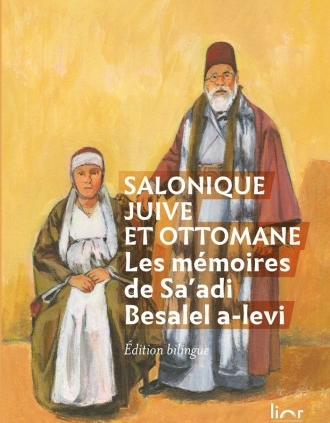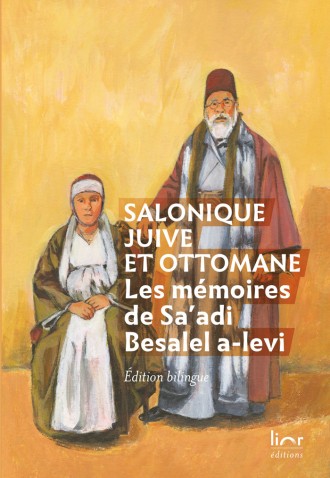A Jewish Voice from Ottoman Salonica
A Jewish Voice from Ottoman Salonica, co-edited by Sarah Stein and Aron Rodrigue was recently translated into French by editions Lior : Salonique juive et ottoman: Les mémoires de Sa’adi Besalel a-Levi
The memoirs of Sa’adi Besalel a-Levi (1820-1903) constitute the first known autobiography of a Salonician Jew. Written in Judeo-Spanish from 1881, they offer an exceptional panorama of life in Jewish and Ottoman Salonika in the 19th century. Their importance is due as much to the personality of their author as a printer, publisher, journalist, cantor and composer as to their content which combines with an eminently subjective vision of the Ottoman Jewish world, descriptions of an ethnographic nature, glimpses of the community organization, power struggles within it, and finally a pro-home advocacy which takes on an ardent and poignant character.
Published as extracts in several newspapers, this text had a great influence on the way in which the history of the Jews of Salonika was remembered and historicized. Long thought lost, the original manuscript written in Eastern Hebrew cursive (soletreo) was rediscovered by chance at the National Library of Israel and reappeared in 2012 at Stanford Press in a remarkable complete edition now accessible to the French-speaking public.



